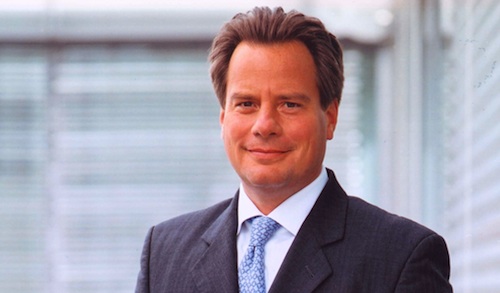
Telkom is trying urgently to renegotiate multiple contracts entered into by its troubled Nigerian subsidiary Multi-Links. If it can’t reach new agreements with the suppliers, Multi-Links could be forced to shut up shop.
That’s the stark warning from Telkom acting CEO Jeffrey Hedberg, who had been running the Nigerian business until a few weeks ago, when he was called on by Telkom’s board to head up the group following the premature departure of former CEO Reuben September.
According to sources, the most problematic of the Multi-Links contracts — and the one that most urgently requires renegotiating — is a distribution agreement with Africa Prepaid Services (APS), a subsidiary of JSE-listed Blue Label Telecoms.
But sources close to Telkom say Blue Label is playing hardball with Telkom and Multi-Links, refusing to revisit the agreement. Hedberg says “hardball” is too strong a word, but he admits “both sides are playing a little game of chicken, for lack of a better word”.
Hedberg warns that the agreement with APS has to be renegotiated. If it’s not, the Multi-Links business is “not sustainable”.
A senior Telkom source says Blue Label is “profiting handsomely” at the expense of Multi-Links and that the situation is not tenable.
“We are continuing to engage with [Blue Label],” Hedberg says.
Blue Label co-CEO Brett Levy says he can’t comment on discussions with Telkom as the company has signed a nondisclosure agreement with the operator. However, he says Multi-Links is “a good business and I don’t think it’s going anywhere”. He says Blue Label will continue negotiating with Telkom on the issue.
Hedberg, meanwhile, denies talk by Telkom insiders that Multi-Links is bankrupt and can’t afford to pay salaries to its employees. “Telkom will continue to be supportive of that business … but it’s important to renegotiate these contracts.”
Other than the APS deal, another problematic contract for Multi-Links is one it has with Nigeria’s Helios Towers, which operates about half of the company’s base stations.
It also has contracts with companies that supply IT solutions and core network services that need to be revisited, Hedberg says.
These contracts, together with the high cost of expatriate staff from SA, contribute between 75% and 80% of Multi-Links’s operating costs, leaving little headroom for operational expenditure designed to grow the business, he says. “It’s very hard for Multi-Links to grow its way out of the position it’s in in a profitable and sustainable way.”
He believes there are still opportunities for Multi-Links if it can reposition itself, moving away from its traditional focus on voice telephony and into the corporate data market.
“There are a lot of financial services, manufacturing and oil and gas companies just screaming out for connectivity,” he says. “Let’s not throw it all away before seeing how we can fix [Multi-Links] and reposition it.” — Duncan McLeod, TechCentral
- Subscribe to our free daily newsletter
- Follow us on Twitter or on Facebook




